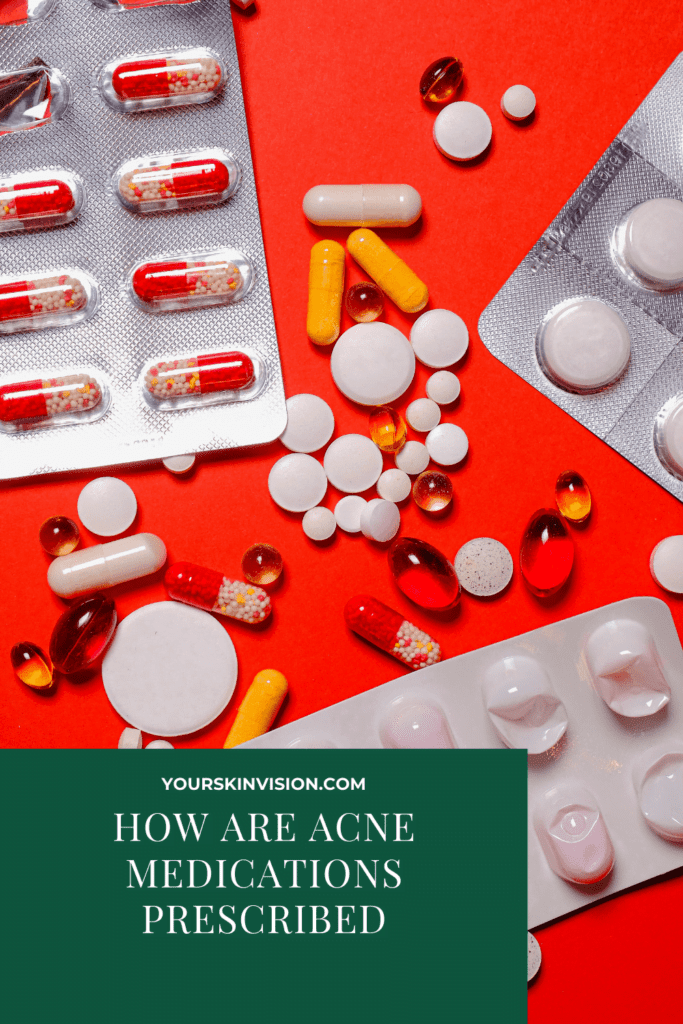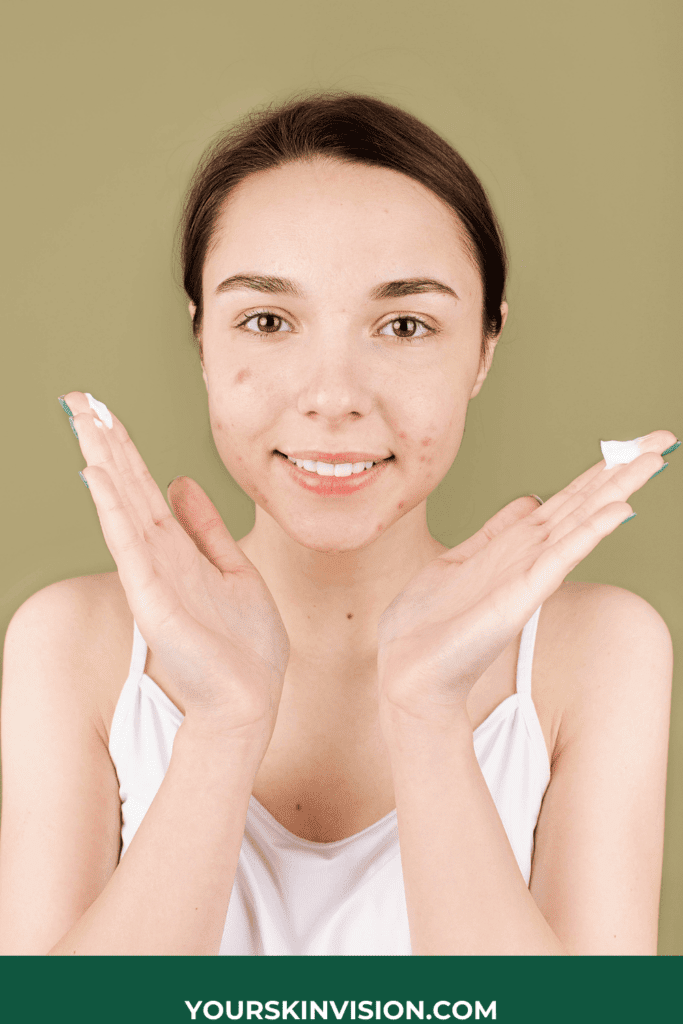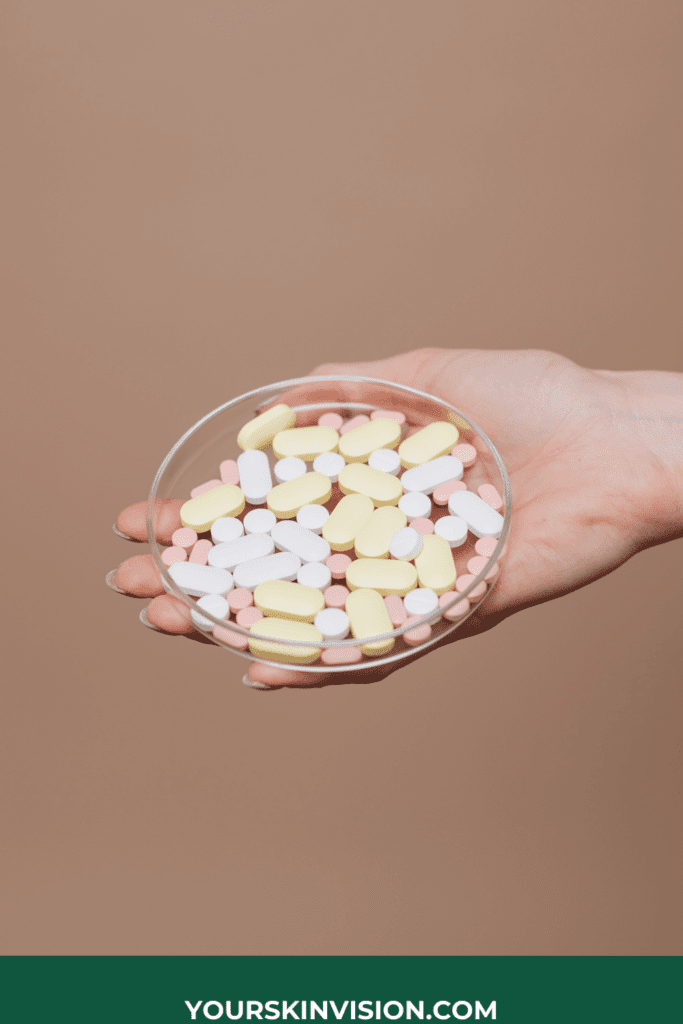Acne is frustrating, but it’s not something you have to suffer with. Getting rid of your acne can help you feel better about yourself and look better too. Acne medications are prescribed by your doctor in order to treat your acne and clear up the condition so that it doesn’t become a long-term problem.
There are many different types of acne medications, each with its own unique benefits and side effects. Your doctor will work with you to find the right combination for your unique needs.

Table of Contents
Acne Medications – The Basics
Acne medications are a mainstay for many people who have acne. They work by controlling the levels of oil and bacteria in your skin.
The goal of acne treatment is to prevent acne from occurring again and to help you maintain clear skin on a regular basis. Acne medications don’t have the same side effects as some other treatments.
Most people have heard of topical antibiotics for treating acne, but there are other treatments available as well. Topical retinoids are used to treat mild to moderate inflammatory acne lesions that do not respond well to topical antibiotics alone.
They also may be used to prevent future occurrences of acne by reducing the number of oil glands that produce sebum (oil) during puberty and adolescence.
If your doctor prescribes oral antibiotics for treating acne bacterial infection, they will usually prescribe them for several weeks at a time rather than continuing treatment indefinitely as topical retinoids do.
They become expensive if you keep taking them over long periods of time.
Acne medications are available from your pharmacist, doctor’s office, or online. It’s important to keep in mind that everyone reacts differently to each medication. So it’s important to try more than one product before deciding which one is best for you.
Types Of Acne Medications
Different acne medications work in different ways to treat your skin condition. Some are topical, others are oral and some are both topical and oral.
Topical Medications
Topical medications can be applied directly to the affected area. They work by reducing the amount of oil produced in the spots, which makes them less visible.
Topical medications can also help with scarring and prevent future breakouts by helping to reduce inflammation. These treatments include creams, gels, and patches placed on your skin. They can be classified into
Topical Retinoids
These are a type of medication that you apply directly to your skin. They reduce inflammation and redness associated with acne and help prevent new pimples from forming.
Topical Antibiotics
These medications are applied directly to your skin and kill bacteria that cause acne. Medications like clindamycin and erythromycin are most commonly used for this purpose They may be used alone or together with creams or gels containing acid ingredients.
Medications Formulated With Acids
There are different medications formulated with salicylic, glycolic, hyaluronic, and lactic acid. This medication helps to unclog skin pores promoting new skin growth.
Oral Medications
Oral acne medications are taken by mouth daily or every other day, depending on your specific needs. They may help with treating mild cases of acne. Different research has shown that they work mainly for moderate, severe, or persistent acne. Examples of these medications include
- Minocycline
- Tetracycline
- Accutane
- Azithromycin
- Trimethoprim
- Isotretinoin and dapsone
- doxycycline
- Aldactone
Other Common Acne Medication
Acne medications are the main treatment for acne. There are many different types of acne medications, and they can be used to treat acne of different severity levels. Acne medications work by reducing the size of pimples, clearing out pores, and reducing oil production in the skin.
There are many other types of acne medications available to treat your condition, including:
Topical Corticosteroids
These steroids reduce inflammation and dead skin cells on the surface of the skin, which helps prevent new pimples from forming.
Oral Contraceptives
This is mainly meant for women to help control oil gland secretions by suppressing androgen hormones.
Why Are Acne Medications So Important?

So why are acne medications so important? Well, for starters, they can help to prevent new breakouts from happening in the first place.
They also help to lessen your existing acne so that it doesn’t get worse or get more severe over time. And finally, they can help reduce the redness and swelling associated with this condition (which can be painful and uncomfortable).
How Are These Medications Prescribed?
Acne medications are prescribed to help clear up your acne. The first thing your dermatologist will do is examine your skin, which will help them determine what type of acne you have and the best treatment for it.
Once they know more about your specific condition, they can start developing a treatment plan that includes prescriptions and over-the-counter treatments.
In addition to medications and cleansers, your dermatologist may also recommend lifestyle changes like diet changes, stress management, exercise, and sleep patterns.
All these factors are important because they can all play a role in treating acne and can help reduce inflammation in the body. This can lead to better results from treatments such as antibiotics or lasers.
Which Acne Medications Are Commonly Prescribed By Dermatologists?

Acne medications are commonly prescribed for mild to moderate acne. They are available in many forms, including creams, gels, lotions, and oral medications.
Some of the more commonly prescribed acne medications include
Benzoyl peroxide (BPO)
Benzoyl peroxide (BPO) is an over-the-counter medication that you can buy at most pharmacies. It works by killing the bacteria causing pimples
Isotretinoin
Isotretinoin is a powerful prescription medication used to treat severe cases of acne and prevent scarring. It’s available only through your doctor, and it can have serious side effects if you don’t follow the directions closely.
Over-The-Counter-Acne-Products
These are cleansing lotions and gels that are formulated with salicylic acid and/or other ingredients such as glycolic acid or lactic acid. They help to minimize pores and prevent breakouts by reducing oil production in your skin’s pores.
These products are formulated to be applied several times daily over several weeks before being washed off with warm water or removed at night with makeup remover pads. They are available at pharmacies and drugstores.
- Retinoids are prescription-only topical creams
Conclusion
The most common treatment for acne is over-the-counter solutions. These medications can be purchased without a prescription and used to reduce pimples and blackheads.
Prescription medications are usually only recommended for mild, moderate to severe acne. A dermatologist can prescribe medication based on your acne severity and the types of acne you are experiencing.
Talk to your dermatologist today about your acne concerns and learn about the treatment options best for your skin.
